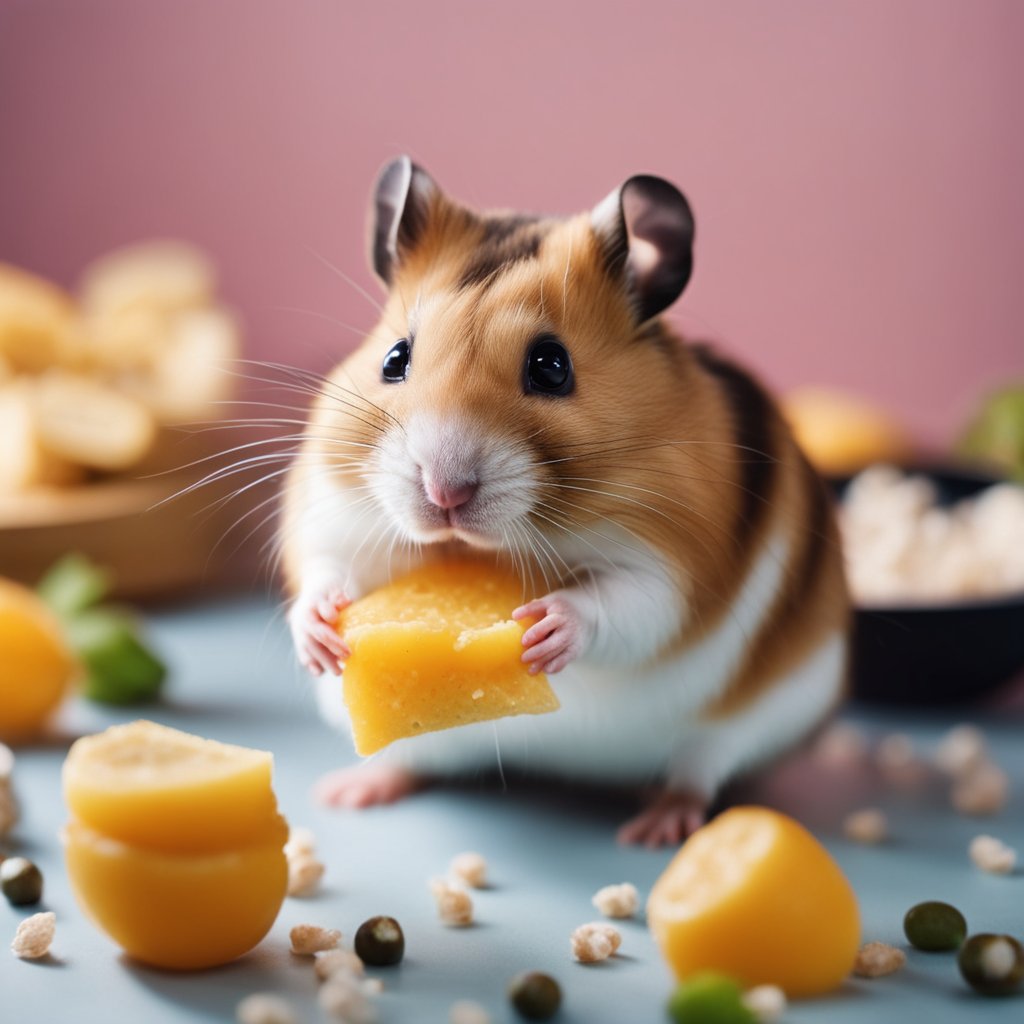Can Hamsters Get Food Poisoning? A Guide to Keeping Your Pet Safe
Hamsters are adorable little creatures that make great pets. They are known for their cute and cuddly appearance, and they are relatively easy to care for. However, as with any pet, there are risks involved with owning a hamster. One of the risks that hamster owners need to be aware of is food poisoning.
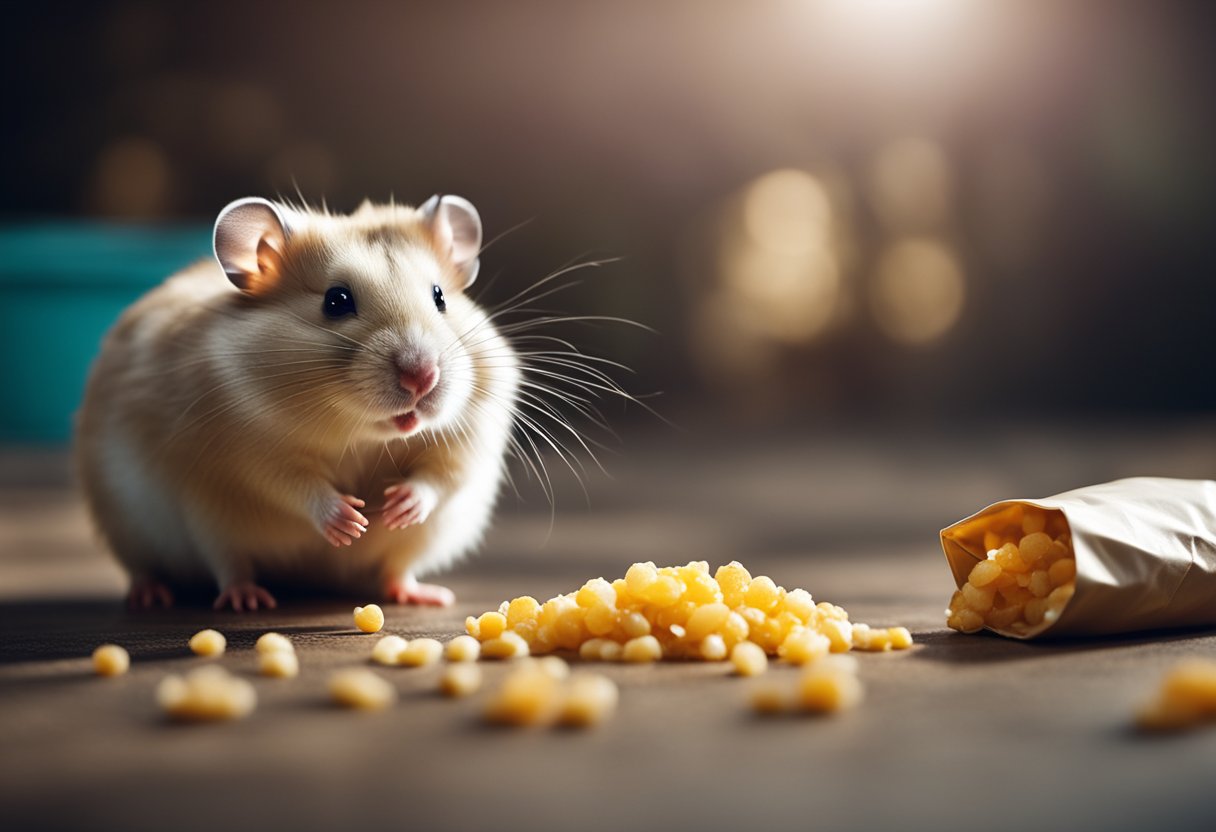
Food poisoning is a serious concern for hamsters, just as it is for humans. Hamsters can get sick from eating spoiled or contaminated food, just like people can. In fact, hamsters are even more susceptible to food poisoning than humans because their digestive systems are more sensitive. This means that even a small amount of contaminated food can make a hamster very sick.
If you are a hamster owner, it is important to be aware of the signs of food poisoning in your pet. These can include vomiting, diarrhea, lethargy, loss of appetite, and dehydration. If you notice any of these symptoms, it is important to take your hamster to the vet right away. With prompt treatment, most cases of food poisoning can be successfully treated, and your hamster can make a full recovery.
Key Takeaways
- Food poisoning is a serious concern for hamsters, as their digestive systems are more sensitive than humans.
- Symptoms of food poisoning in hamsters include vomiting, diarrhea, lethargy, loss of appetite, and dehydration.
- Prompt treatment is essential to successfully treat food poisoning in hamsters.
Understanding Food Poisoning in Hamsters
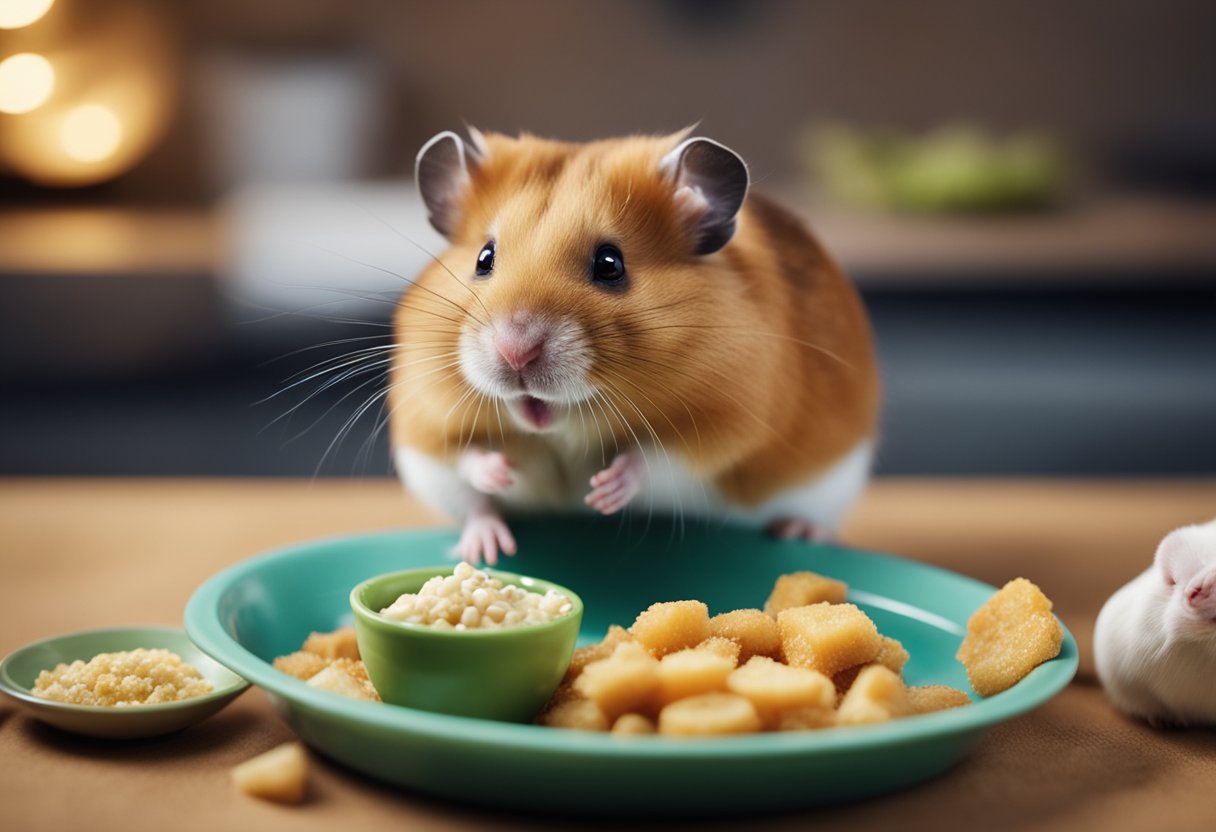
Hamsters, like any other animal, can get food poisoning. It is important to understand what causes food poisoning in hamsters, what symptoms to look for, and the risks and complications associated with it.
Causes of Food Poisoning
There are several causes of food poisoning in hamsters. One of the most common causes is the ingestion of expired or contaminated food. Hamsters can also get food poisoning from ingesting chemicals or other toxic substances. Some foods that are safe for humans may be toxic to hamsters. For example, avocado and chocolate are toxic to hamsters and should be avoided.
Symptoms to Look For
It is important to be aware of the symptoms of food poisoning in hamsters. The main symptoms include vomiting, diarrhea, loss of appetite, and reduced activity. If you notice any of these symptoms in your hamster, it is important to take them to the vet immediately.
Risks and Complications
Food poisoning in hamsters can be very dangerous and can have serious consequences. If left untreated, it can lead to dehydration, malnutrition, and even death. It is important to take your hamster to the vet as soon as possible if you suspect they have food poisoning.
To prevent food poisoning in hamsters, make sure to give them fresh, clean food and water. Avoid giving them foods that are toxic to them, such as avocado and chocolate. Also, make sure to clean their cage regularly to prevent the growth of harmful bacteria.
Prevention and Treatment
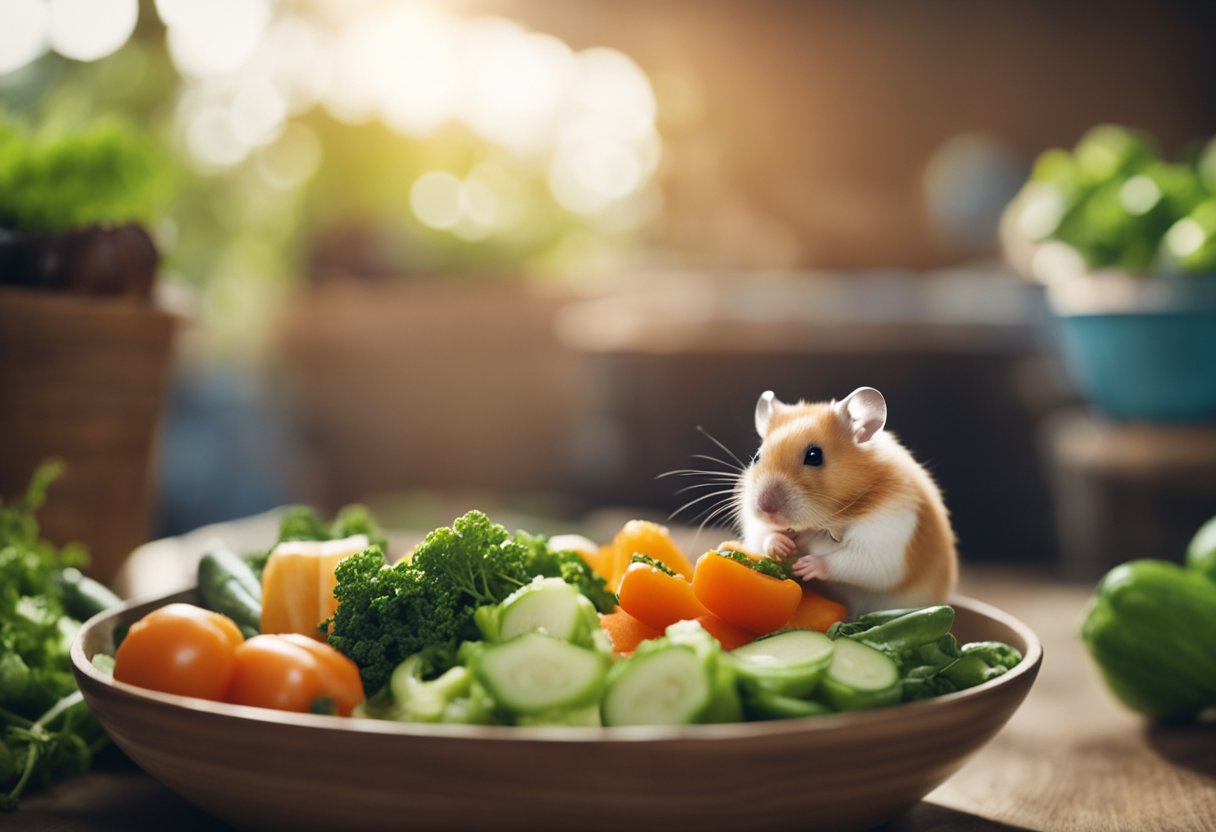
Safe Feeding Practices
Hamsters are susceptible to food poisoning just like any other animal. To prevent your hamster from getting sick, it is important to follow safe feeding practices. Always make sure that the food you are giving your hamster is fresh and has not expired. Additionally, avoid giving your hamster any human food that is high in fat, sugar, or salt, as these can cause digestive problems.
To ensure that your hamster is getting all the nutrients it needs, provide a balanced diet that includes fresh fruits and vegetables, seeds, and pellets. Make sure to clean your hamster’s food dish regularly to prevent the growth of harmful bacteria.
When to Seek Veterinary Care
If you suspect that your hamster has food poisoning, it is important to seek veterinary care immediately. Symptoms of food poisoning in hamsters include diarrhea, vomiting, lethargy, and loss of appetite. In severe cases, food poisoning can lead to dehydration and even death.
Your veterinarian may recommend a course of antibiotics or other medications to treat the underlying infection. In addition, they may recommend supportive care such as fluids and electrolytes to help your hamster recover.
Remember, prevention is key when it comes to food poisoning in hamsters. By following safe feeding practices and seeking veterinary care when necessary, you can help ensure that your furry friend stays healthy and happy.
Resources
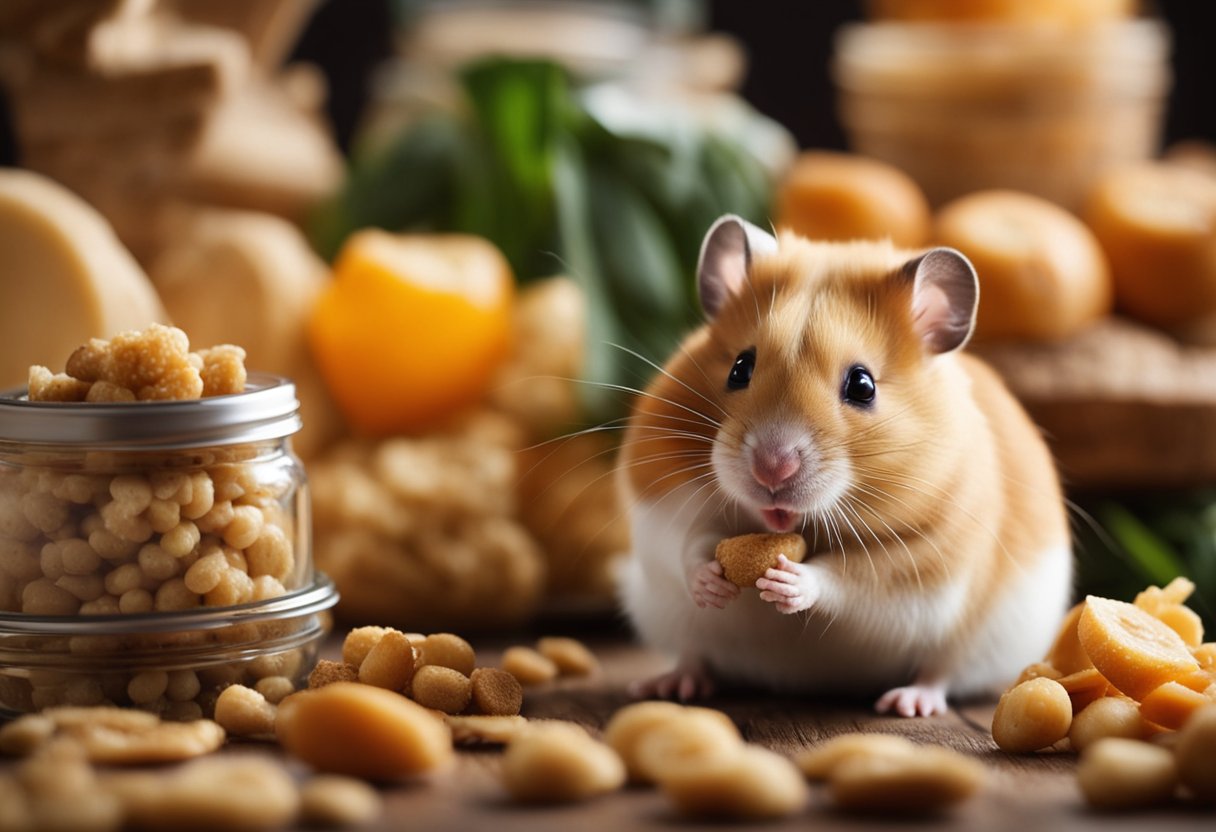
When it comes to keeping your hamster safe from food poisoning, there are a few resources that can help you make informed decisions about what to feed your furry friend. Here are a few useful resources to check out:
- Safe and Unsafe Food list for Hamsters – This comprehensive list from The Hamster Forum provides detailed information on what foods are safe and unsafe for hamsters to eat. The list is broken down into categories such as fruits, vegetables, and grains, making it easy to find the information you need.
- Hamster Health & Welfare Tips – The RSPCA offers a wealth of information on hamster health and welfare, including tips on how to keep your hamster safe from food poisoning. This resource covers everything from the signs of illness or poisoning to the proper way to feed your hamster.
- Safe Plants for Hamsters – If you’re looking to add some greenery to your hamster’s habitat, it’s important to choose plants that are safe for your pet to nibble on. This article from The Hamster Care provides a list of safe and unsafe plants for hamsters, along with helpful tips on how to keep your hamster safe from toxic plants.
In addition to these resources, it’s important to stay up-to-date on the latest research and recommendations for hamster care. You can find a wealth of information online, but be sure to check your sources and verify the information before making any decisions about your hamster’s diet or care. With the right resources and a little bit of knowledge, you can help keep your hamster happy, healthy, and safe from food poisoning.
Conclusion
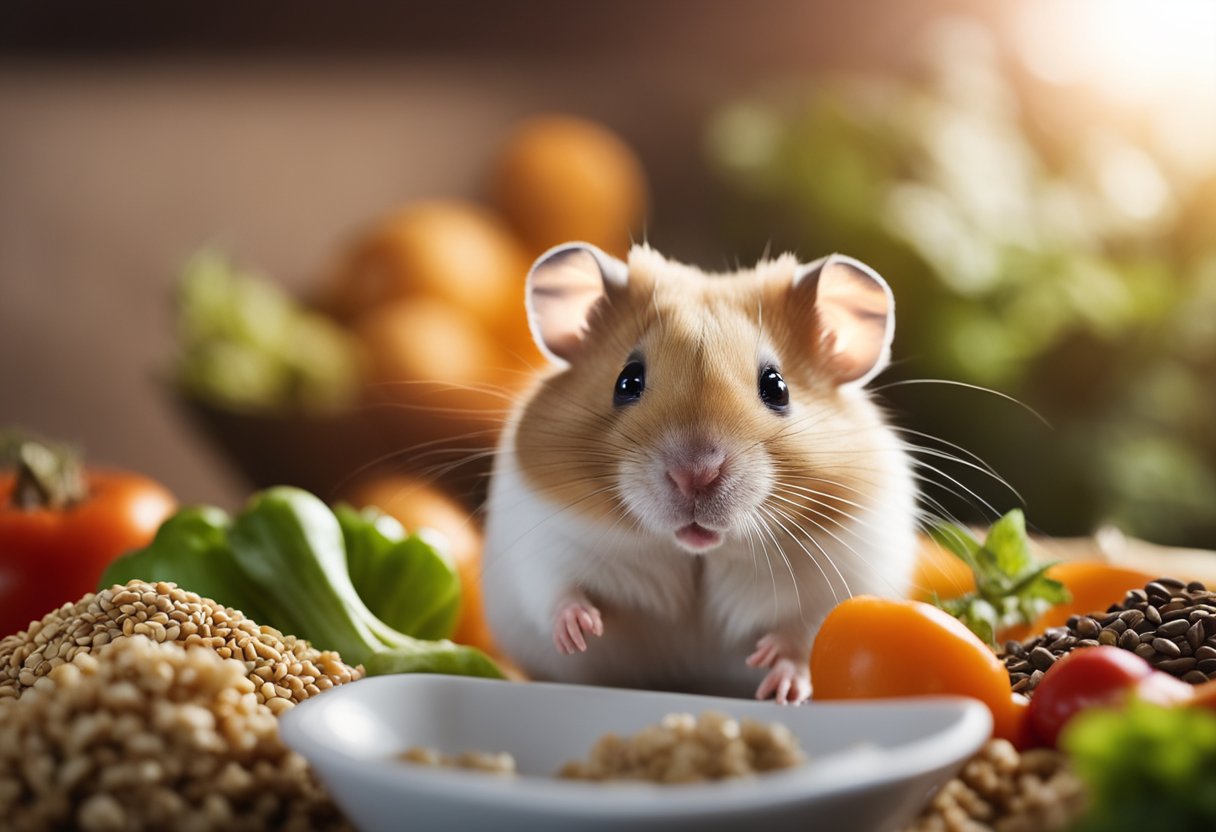
In conclusion, while hamsters are generally hardy animals, they are still susceptible to food poisoning. As a responsible pet owner, it is important to be aware of what foods are safe to feed your hamster and what foods should be avoided.
Remember to always provide your hamster with fresh, clean water and a balanced diet that meets their nutritional needs. Avoid feeding them foods that are high in fat, salt, or sugar, as these can lead to health issues such as obesity and diabetes.
If you suspect that your hamster has eaten something toxic, contact your veterinarian immediately. Signs of food poisoning in hamsters can include lethargy, loss of appetite, diarrhea, regurgitation, and seizures.
By following these guidelines and being vigilant about what your hamster eats, you can help ensure that your furry friend stays healthy and happy for years to come.
Frequently Asked Questions
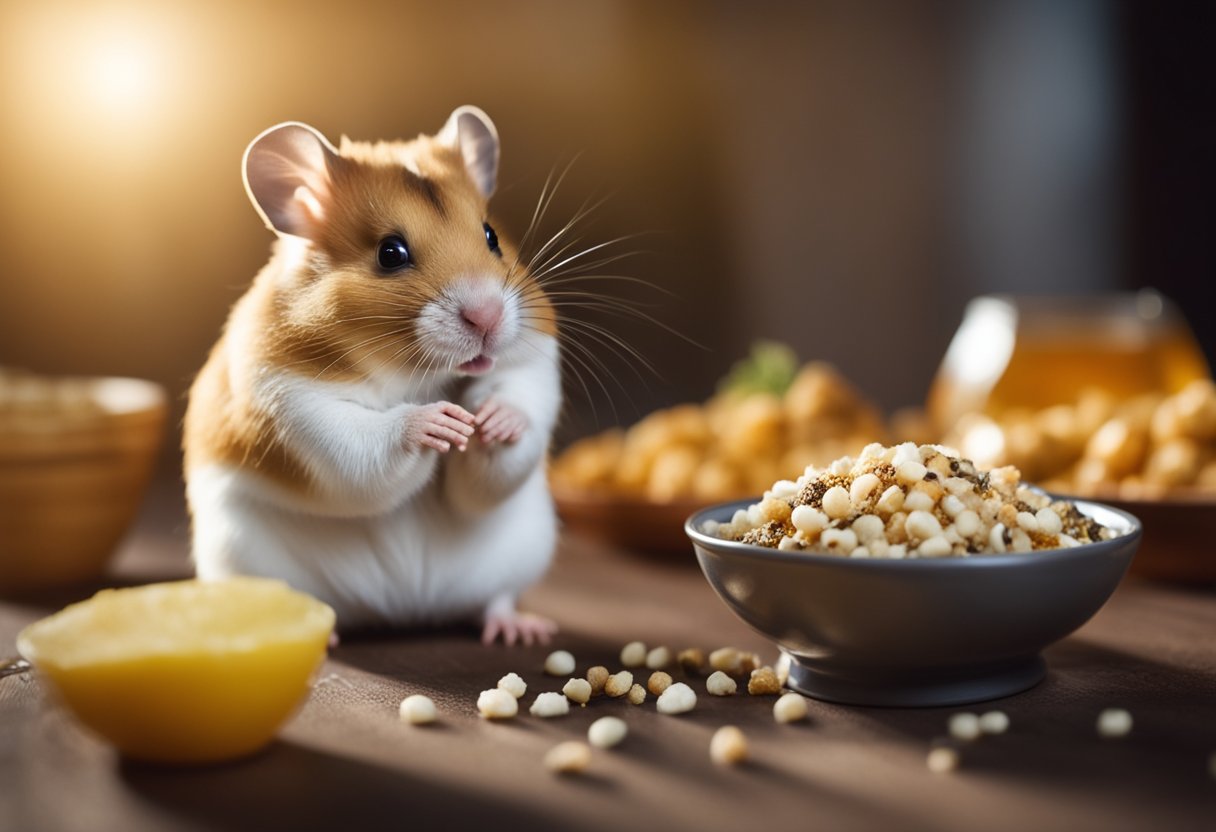
What are the signs of poisoning in hamsters?
Hamsters can display a variety of symptoms when they are poisoned, including lethargy, loss of appetite, vomiting, diarrhea, seizures, and even death. If you notice any of these symptoms in your hamster, it is essential to seek veterinary care as soon as possible.
How can I tell if my hamster has ingested something toxic?
It can be challenging to determine if your hamster has ingested something toxic, as they are not able to communicate their discomfort in the same way as humans. However, if you notice any of the symptoms mentioned above, it is essential to take your hamster to the veterinarian immediately.
What immediate steps should be taken if a hamster is suspected to have food poisoning?
If you suspect your hamster has food poisoning, the first thing you should do is remove any remaining food from their cage. Make sure your hamster has access to fresh water, and then take them to the veterinarian as soon as possible. The veterinarian will be able to diagnose the issue and provide treatment.
Can a hamster’s diet lead to serious health issues?
Yes, a hamster’s diet can lead to serious health issues if it is not balanced. It is essential to provide your hamster with a balanced diet that includes pellets, fresh fruits and vegetables, and occasional treats. Consult with your veterinarian to ensure your hamster is receiving the appropriate nutrients.
How can I prevent my hamster from getting food poisoning?
To prevent food poisoning in your hamster, make sure to provide them with fresh water and clean their food and water dishes regularly. Avoid giving your hamster any human food, as many common household foods can be toxic to them. Stick to a balanced diet of pellets, fresh fruits and vegetables, and occasional treats.
Are there any common household foods that are dangerous for hamsters to eat?
Yes, there are several common household foods that are dangerous for hamsters to eat, including chocolate, caffeine, garlic, onions, and avocado. Additionally, some fruits and vegetables, such as citrus fruits and rhubarb, can be toxic to hamsters. It is essential to research any new foods before giving them to your hamster and to consult with your veterinarian if you have any concerns.
